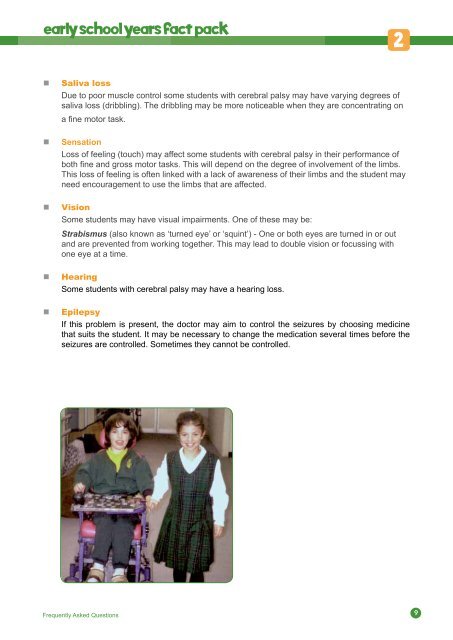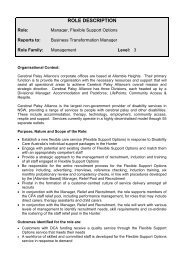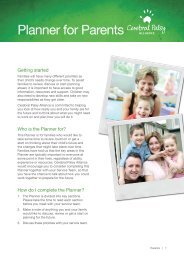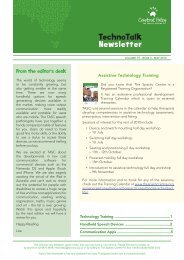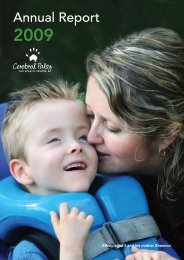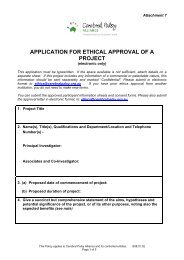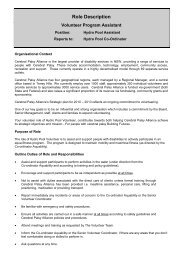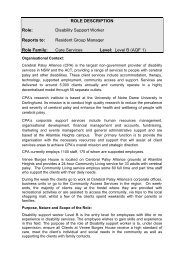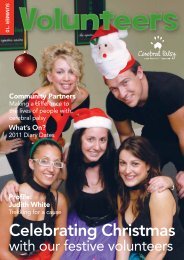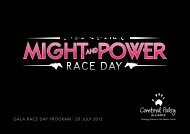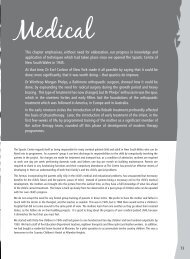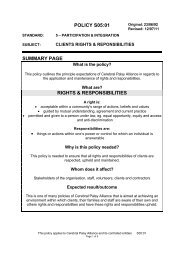Early School Years Fact Pack - Cerebral Palsy Alliance
Early School Years Fact Pack - Cerebral Palsy Alliance
Early School Years Fact Pack - Cerebral Palsy Alliance
You also want an ePaper? Increase the reach of your titles
YUMPU automatically turns print PDFs into web optimized ePapers that Google loves.
early school years fact pack<br />
2<br />
• Saliva loss<br />
Due to poor muscle control some students with cerebral palsy may have varying degrees of<br />
saliva loss (dribbling). The dribbling may be more noticeable when they are concentrating on<br />
a fine motor task.<br />
• Sensation<br />
Loss of feeling (touch) may affect some students with cerebral palsy in their performance of<br />
both fine and gross motor tasks. This will depend on the degree of involvement of the limbs.<br />
This loss of feeling is often linked with a lack of awareness of their limbs and the student may<br />
need encouragement to use the limbs that are affected.<br />
• Vision<br />
Some students may have visual impairments. One of these may be:<br />
Strabismus (also known as ‘turned eye’ or ‘squint’) - One or both eyes are turned in or out<br />
and are prevented from working together. This may lead to double vision or focussing with<br />
one eye at a time.<br />
• Hearing<br />
Some students with cerebral palsy may have a hearing loss.<br />
• Epilepsy<br />
If this problem is present, the doctor may aim to control the seizures by choosing medicine<br />
that suits the student. It may be necessary to change the medication several times before the<br />
seizures are controlled. Sometimes they cannot be controlled.<br />
Frequently Asked Questions<br />
9


